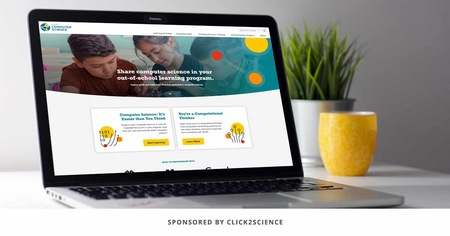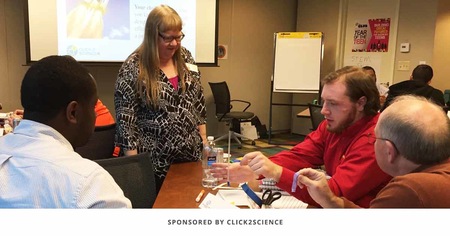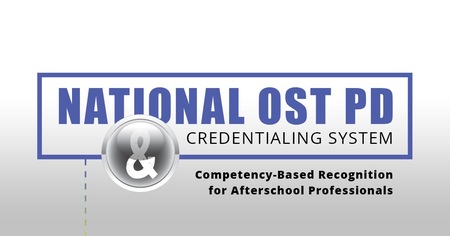Afterschool STEM programs are often limited by lack of access to quality materials or technical expertise of staff in the subject matter. Leading STEM activities requires skills and expertise in youth development and a level of comfort in admitting that staff are not STEM experts. Effective professional development (PD) can have an impact on staff comfort and capacity in facilitating STEM activities, and increase staff retention by OST programs.2,3
Click2SciencePD.org is specifically designed to support OST programs in developing the skills their staff need to deliver high quality experiences for youth.
"Excellent afterschool programs depend largely on the talents and abilities of staff and leaders," write Joseph Davis, Lani Lingo and Shelah Woodruff in "Strategies to Improve Florida's 21st Century Community Learning Centers.4
Promising evaluation results support the ability of Click2SciencePD to make a positive impact on frontline staff practice.5
The Click2Science's National Trainer Institute, May 22 – 23, 2018, in Omaha, Nebraska, is designed for trainers developing their PD expertise for OST programs. Similar to popular Click2Science educator workshops, the Trainer Institute is an interactive, research-based experience focused on best practices for delivering PD using the Click2SciencePD model.
Register now to save your spot: click2sciencepd.org/trainer-institute
Dr. Saundra Wever Frerichs is driven to learn about and improve informal science learning and teaching. She thinks the experiences we all have in museums, zoos and gardens, in the clubs and groups we join, and with our family and friends to learn about the world and how it works are crucial. In particular, she focuses on providing support for volunteers and professionals who lead science experiences for youth— equipping them to be confident and effective as they make learning happen in all kinds of settings. As part of the Click2Science team, she designs and facilitates learning experiences for trainers and staff.
1 Bouffard, S., & Little, P. M. D. (2004). Promoting quality through professional development: A framework for evaluation (Issues and Opportunities in Out-of-School Time Evaluation Brief No. 8). Cambridge, MA: Harvard Family Research Project.
2 Afterschool Alliance. (2010) Afterschool: Middle School and Science, Technology, Engineering and Math (STEM). Afterschool Alert: Issue Brief, 44. Afterschool Alliance.
3 Chun, K. and Harris, E. (2011) STEM Out-of-School Time Programs for Girls. Research Update: Highlights from the Out-of-School Time Database, 5. Cambridge, MA: Harvard Family Research Project.
4 Davis, J:, Lingo, L.; Woodruff, S. (2013). Strategies Used to Improve Florida's 21st Century Community Learning Centers. Expanding Minds and Opportunities: Leveraging the Power of Afterschool and Summer Learning for Student Success. Peterson, T. ed. Expanded Learning and Afterschool Project.
5 Hawley, L., Stevens, J., Pense, S., & Perez, A. (2017). ORGANIZATION: Triangulated evaluation. Retrieved from University of Nebraska-Lincoln, ORGANIZATION website.




